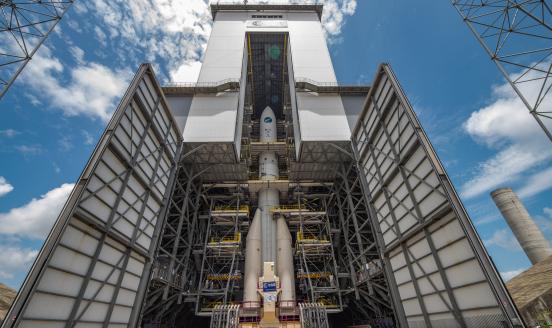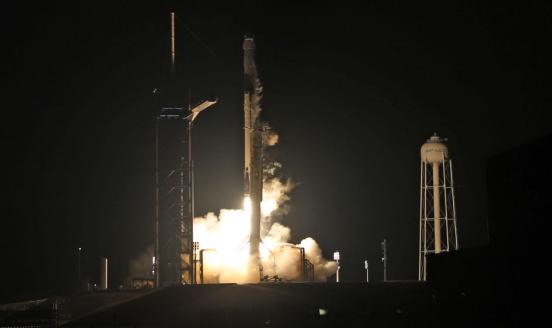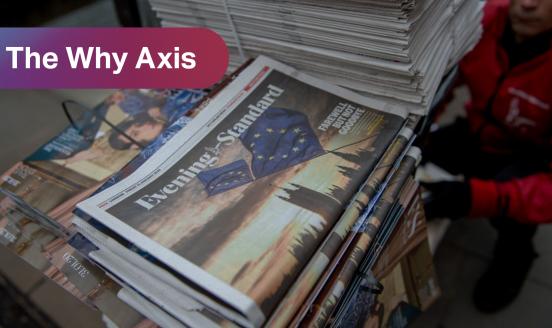The industrial internet will transform policymaking
The ‘internet of things’ will bring major changes in many areas of life, including the political arena. What will be the new communication tools, stra
This article draws on reflections made by the author in the chapter “Policy and politics in the era of Industrial Internet” included in the volume Out-thinking Organizational Communications - The Impact of Digital Transformation?, published by Springer.
Any device with an on-and-off switch can (and should) be connected to the Internet. This is the basic idea of the industrial internet, also referred to as the ‘internet of things’. Forecasts indicate that around 6.4 billion connected devices will be in use worldwide by the end of 2016, up 30% from 2015. The total will reach 20.8 billion by 2020.
These figures show the scale of the technological change, but there is little agreement on the likely consequences. Arguments about the industrial internet mix fact and science with speculation and emotion. Some warn that we are witnessing the arrival of a darker world of surveillance, consumer lock-in, and violations of privacy and security. Others predict a revolutionary, fully-interconnected “smart” world of progress, efficiency and opportunity.
The hope is that, after years of economic crisis, the internet of things will boost production and bring huge benefits for consumers. To fulfil this promise, governments are gradually adopting new regulatory frameworks and policies on issues such as interoperability, privacy, security, data storage and spectrum and bandwidth.
Synchronisation of data flows and decision making might result in the automatic selection of the “best” possible policies
However, deep changes will also occur in the political realm. The availability of a wealth of data will offer new raw material for democratically accountable politicians when they are making policy decisions. At first sight, this new situation resembles little more than an upgraded version of the current approach to evidence-based policy. However, with increased automatisation and real-time data processing, the nature and use of this “evidence” will inevitably change. Synchronisation of data flows and decision making might result in the automatic selection of the “best” possible policies.
Who will own the data?
So far, the main producers of background studies and policy papers on this issue have been government agencies, think tanks, civil society organisations, industries and trade associations. All agree on one crucial question: who will own the “evidence” gathered through the industrial internet?
Will the industrial internet create new forms of discrimination?
Data or algorithms could be private or common goods, according to political choices. This choice will affect incentives for producing and collecting data. The economic value of data is increasingly relevant, as are questions about the accessibility, storage and treatment of data. An increasing asymmetry might occur between those able to access such information and those who will be denied, either for economic reasons such as the price of data, or political reasons such as the wish to keep data away from specific groups.
If access to data is denied for economic reasons, would this be perceived as discrimination? Will the industrial internet create new forms of discrimination? What about data issues linked to the fight against organised crime or terrorism? According to Gartner, by 2020 there will be a black market worth more than $5 billion for fake sensor and video data to enable criminal activity and protect personal privacy.
Organisational changes in politics
The internet of things could also transform the political process. The massive availability of data and the increasing power of decision-making algorithms will change both political institutions and the organisations influencing whoever or whatever will be making decisions.
What institutional set-up can best channel and apply the new information gathered through the internet of things?
Will political parties continue to be the standard form of organisation to represent the voices of the electorate? How will political campaigns look in the era of the industrial internet? What institutional set-up can best channel and apply the new information gathered through the internet of things?
The policy “production” process might be utterly redesigned. Data collected by devices we use on a daily basis (such as vehicles, domestic appliances and wearable sensors) will provide precious evidence about the drivers of personal voting choices, or the impact of government decisions.
Vital new competencies
Social actors who wish to influence policy debates – think tanks, lobbyists, advocates and campaigners - will have to find new ways to use and explain this data. They will still have a role proposing and communicating alternative policy scenarios, but they will also have to consider algorithm-generated policy options. In this context we will probably see changes in political communications. Whether describing or promoting policy options, commentators will have to take into account the changed “building blocks” of policy debates and decision making itself.
Think tanks and other applied research centres will need to develop new skills and capacity to access and process data in real time, otherwise their analytical capacity might become outdated. In the long term, this also means that governments should invest more in education, with a focus on relevant competencies.
Meanwhile, politicians will have to be much more specific in describing and justifying their role in the process. Their capacity as storytellers, which is already an essential skill, will become ever more important.
Policies as sellable outcomes
One of the promises of the industrial internet is to push our economic system towards an outcome economy. Companies will create value not just by selling products and services, but by delivering solutions that directly produce quantifiable results.
This has already happened in some areas. In 2013, Monsanto purchased Climate Corporation, a company which has used remote sensing to map all the farming fields in the United States by shape, crop, yield, soil capacity and other critical metrics. Monsanto can therefore predict which seeds will grow best in which fields and under what conditions, and deliver the products that are most likely to deliver the outcome which the client has paid for.
Policies could become sellable commodities purchased by governments in a market of outcomes.
Within such an economic system, policies could become sellable commodities purchased by governments in a market of outcomes. For example, the mayor of a city might decide to buy a platform that will design and implement specific policies to manage traffic congestion or pollution. Solutions of this kind are being already developed. In Los Angeles, in 2014, a company called StreetLine installed 7,000 hockey-puck-sized sensors in city roadbeds that communicate real-time parking conditions to smartphone apps, telling drivers where parking is available. A minister of health could buy a nationwide strategy with applications for remote patient monitoring, allowing doctors to obtain real-time access to health data.
A new role for politicians
One immediate worry is the risk that politicians will rely too heavily on unaccountable high-tech companies, purchasing outcomes delivered through services they do not understand. How can we address the associated concerns?
Keep politics in the public realm by shifting collective decision making towards a more outcome-oriented approach.
One possibility would be to keep politics in the public realm by shifting collective decision making towards a more outcome-oriented approach. Elected governments could continue to play an active role in the new world of the industrial internet. They would continue to be elected by citizens to decide on common and public goals, but these would eventually be pursued independently by “outcome providers” chosen by the government from a marketplace.
In this scenario, the policy debate would probably move from issues closely linked to technical implementation towards broader discussions. Democratic processes could set the limits within which algorithms and machines work to automatically deliver outcomes. The democratically chosen values and parameters standing behind the algorithms would help transform the massive flow of data into concrete applications and solutions.
Communication challenges
Political stakeholders will have to keep up with these changes if they want to retain their influence over the way policies are drafted, decided, implemented and evaluated. They will have to react swiftly while society is finding its way through the tension between a technocratic automatised dystopia, a dream-like techno-utopia and a digitally-enhanced business as usual.
Indeed, in the case of the industrial internet, prevailing political discourses and narratives will also shape the further development of the technology. There will be a feedback loop between the impact of new technologies on political debates and processes, and the impetus or limits that politics then applies to the industry. The direction of travel is far from certain, and the level of transformation is still unknown. However, political communicators need to be ready to change their practice to suit new political realities.
A transparent and democratic oversight of the future.
How will this affect the role of media and other political commentators? Will these changes increase or diminish their power in influencing political outcomes? Perhaps we will see campaigns in which individual citizens will have more direct access to politicians, but what would that mean in practice? Professional communicators will play a pivotal role in shaping such discourse wherever they operate: in industry, research, government or within pressure groups. The most important mission that they have is to transmit goals and proposals in an understandable way, in order to keep citizens aware of the causes and consequences of the changes that are happening. Only this way can citizens ultimately exercise a transparent and democratic oversight of the future of society.
Disruptive technologies spill over
To draw some partial conclusions, the industrial internet certainly constitutes a disruptive technology in the industrial production process — but it will inevitably spill over into the political process. The most immediate consequence is the need for regulation to adapt fast enough to keep up with technological progress. However, the medium and long-term consequences are yet to be defined and could entail radical changes in governance and democracy. It is important that we start this discussion now and consider all the risks and opportunities involved in such epochal change. Indeed, the debate itself is a vital first step to ensure that the transition to a big data society is democratic in both direction and destination.



